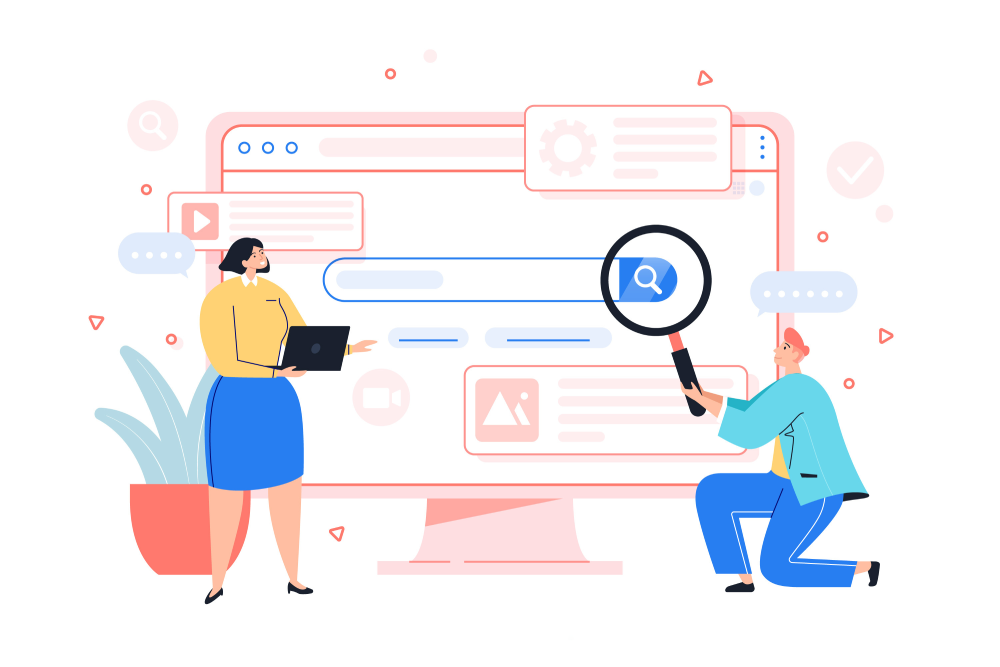-
Nexunom
Marketing firm providing different services and products.
-
Allintitle
Premium keyword research tool and long-tail keywords finder.
-
Review Tool
Review management tool used by local businesses to get more reviews.
-
Tavata
Two-way text-based website chat widget with Pay-Per-Text payment structure.
Is Search Engine Optimization and Marketing Really Necessary?

Is search engine optimization and marketing really necessary? In short, the answer is a resounding yes! And that is especially true for local businesses.
Search Engine Marketing and Search Engine Optimization are the strategies employed to increase a website’s visibility through search, and therefore generate more users. SEM and SEO can employ the use of paid search, organic placement, and contextual advertising to promote the website and increase visibility on the search engine results. Contextual advertising consists of blogs or news articles, or other targeted writings, that can help increase a website’s visibility.
When people are in need of a product or service, research shows that the internet is where they turn. And with smartphones and tablets on hand 24/7, finding your business is at their fingertips. SEM, which consists of paid ads, can target potential customers based on what they are searching for. That then results in your business being right in front of them in seconds.
The internet is full of information that can be hard to wade through on your own. But search engines streamline our access to information for us. It’s crucial to be seen first - brand awareness is key. Then, you’ll want to stand out and ensure you are chosen. With SEM and SEO, you can drive quality traffic to your site. If your goal is conversions, it’s not enough to just drive traffic to your site, but to ensure that traffic is relevant and will result in conversions.
SEO and SEM experts use the term “zombie traffic” to refer to an uptick in user traffic that doesn’t result in an increase in conversions. It isn’t always apparent where this traffic is coming from, and it can be hard to get rid of it. A zombie visitor won’t interact with your website, but it will still eat up your server resources.
High quality traffic will be comprised of your target audience, who spend time navigating your site and who take action - such as filling out an online form or appointment request, calling you, downloading a document, or leaving a comment on a blog.
A good SEM approach will use searches that are important to your business to increase your site’s rankings and visibility. Chances are good if you aren’t showing up for the searches that are important to your business, your competitors are - and you can be missing out on that business.
According to SmartInsights.com’s Search Engine Statistics 2018, 3.5 billion Google searches are performed each day. Of course, most of these searched won’t relate to you, but for the ones that do, SEM and SEO allow you to be sure you’re being seen by the right customers. Using targeted keywords, along with geo-targeting, device targeting and ad scheduling (if you’re using paid searches), you can precisely target your users.
If you’re a children’s dentist serving the Kansas City area, you want potential patients in only that area to find you - you don’t need to worry about ranking nationwide, but you will want to be sure you can be found in the greater Kansas City area. Geo-targeting can ensure you are reaching people in your market area. Likewise, if you’re an orthodontist, you want to be found when someone in your area searches for braces, but you only want to appear when someone is looking for orthodontic braces, and not, say a knee brace.
Likewise, if most of the people searching for your product or service are using mobile devices for searches, but you’re not yet mobile friendly, you may be missing out. BrightEdge found that 79% of keywords rank differently in search on mobile versus desktop. And in 2017, SmartInsights.com says that in 2017, mobile accounts made up 50.3% of web-generated traffic around the world. And in some countries, including the US and Japan, more Google searches take place on mobile devices than anything else.
Search engine optimization is crucial to businesses for several reasons.
- The top organic search results are most likely to get the clicks. Research shows that users are most likely to click on one of the top five results returned in the search .
- SEO isn’t about “tricking” the search engines or using what we refer to as black hat techniques, but about improving the user’s experience and helping searchers know the results returned are in fact relevant and useful to them.
- Research shows that users trust search engines and the results they return. But, that will only continue to be the case if Google returns relevant information. If you can be found in the top positions for a user’s keyword, the more likely they are to see you as an authority on the subject they are searching.
- SEO can put you ahead of your competitors, literally. If you have a strong SEM and SEO program in place, you can find yourself listed ahead of your competitors, hopefully ensuring users click on your website first. SEM and SEO work together to provide you more real estate to get your brand noticed.
- It’s trackable. With SEO and SEM, both paid and organic, you can use analytics to see what keywords are creating conversions, where users are located, the types of devices they are using, and even the times of day they are finding your site. With call tracking tools, you can also track calls and where the originated from. This allows you to then customize your program even further.
- Your website is your best salesperson. Users can access information on your website 24 hours a day, 7 days a week. Make sure it can be found easily, and that it will return what the user wants. Uptime is important, and tracking your website’s uptime will be crucial.
- Google and other search engines need your help to understand your business. And that’s why SEO should be seamlessly woven into your website. If you know what your potential customers are going to need while building your site, you can plan your site’s structure around being as user friendly, and there by search engine friendly, as possible.
- If you aren’t utilizing SEO, you may be ignoring potential customers. People are turning to searches to find their answers and purchase products or services, and if you aren’t showing up, they may be turning to your competitors.
- SEO puts the power into your hands. One piece of a good SEO program utilizes title tags and meta descriptions to include the keywords you want to appear, instead of just allowing the search engine to generate random text to show up in searches. It’s up to the user to choose between your link and your competitor’s link, so you want to be sure your messaging stands out. Search engines may sometimes modify your search snippet based on what users are searching for.
- Top rankings not only get your business found, they set your business apart. Think of the number one ranking like a the training to get to the gold medal - it sets your company apart as the “go to” source on whatever the search query was, but then it is up to your website performance to bring the medal home (i.e. create conversions).



